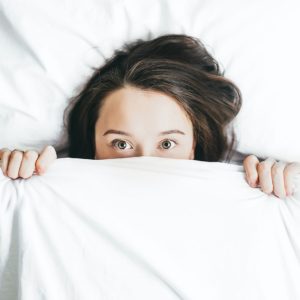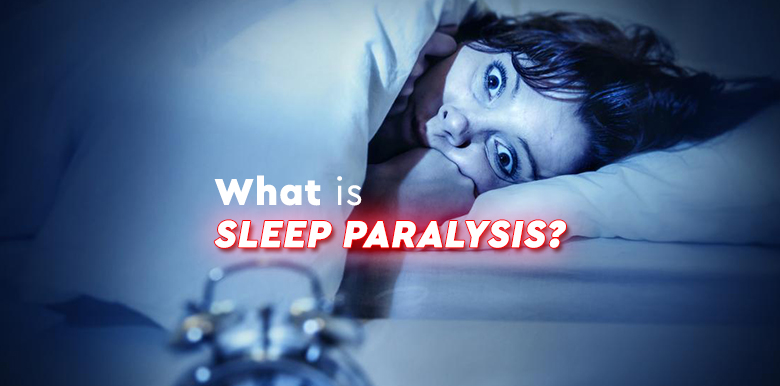A frightening form of paralysis that occurs when a person suddenly finds himself or herself unable to move for a few minutes. Sleep paralysis is due to an irregularity in passing between the stages of sleep and wakefulness.

Sleep paralysis
The symptoms of sleep paralysis include sensations of noises, smells, levitation, paralysis, terror, and images of frightening intruders. Once considered very rare, up to half of all people are now believed to experience sleep paralysis sometime during their life. Sleep paralysis is not considered to be a sign of a serious condition, although it can be frightening.
These occur during the transition between sleeping and waking, and they consistently fall into one of three categories:
Intruder: There are sounds of doorknobs opening, shuffling footsteps, a shadow man, or a sense of a threatening presence in the room.
Incubus: Feelings of pressure on the chest, difficulty breathing with the sense of being smothered, strangled or sexually assaulted by a malevolent being. The individual believes they are about to die.
Vestibular-motor: A sense of spinning, falling, floating, flying, hovering over one’s body or another type of out-of-body experience.
Tips for better sleep:
There is no specific treatment for sleep paralysis, but stress management, maintaining a regular sleep schedule, and observing good sleep habits can reduce the likelihood of sleep paralysis.
Strategies for improving sleep hygiene include:
• keeping bedtime and wake-up time consistent, even on holidays and weekends
• ensuring a comfortable sleep environment, with suitable bedding and sleepwear and a clean, dark and cool bedroom
• reducing light exposure in the evening and using night-lights for bathroom trips at night
• getting good daylight exposure during waking hours
• not working or studying in the bedroom
• avoiding napping after 3.00 p.m. and for longer than 90 minutes
• not eating a heavy evening meal, or eating within 2 hours of going to bed
• not sleeping with the lights or television on
• abstaining from evening alcohol or caffeine products
• exercising daily, but not within 2 hours of bedtime
• including a calming activity in the bedtime ritual, such as reading or listening to relaxing music
• leaving phones and other devices outside the bedroom
• putting electronics aside at least 1 hour before going to bed
Ongoing stress and disruption in the sleep cycle can have serious health implications. Healthy sleep habits are not just necessary for sleep paralysis management, but for overall health and wellness. Comment down below if you ever had sleep paralysis.
